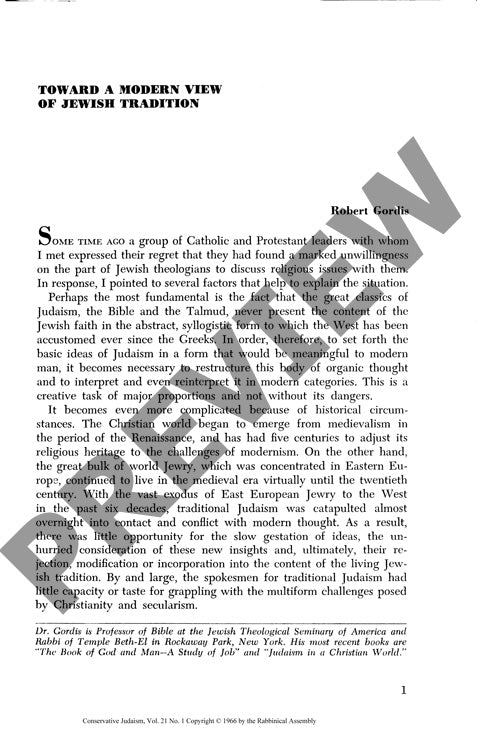Toward a Modern View of Jewish Tradition
Couldn't load pickup availability
Modern Jewish theological discourse faces a fundamental challenge: how to bridge classical religious texts with contemporary interfaith dialogue and modern thought. The organic, non-syllogistic nature of Jewish doctrine in foundational works like the Bible and Talmud requires creative restructuring to engage with current audiences and theological frameworks. Through critical examination of Rabbi Louis Jacobs' "Principles of the Jewish Faith" and its use of Maimonides' Thirteen Principles, this research reveals how Eastern European Jewry's abrupt transition from medieval to modern contexts—unlike Christianity's gradual five-century evolution—created distinctive interpretive challenges. Attempts to categorize Jewish beliefs into those that can and cannot be contradicted by new knowledge prove problematic, as even fundamental doctrines face challenges from anthropology, comparative religion, and historical scholarship. The analysis demonstrates that reason and moral conscience must serve as arbiters in religious interpretation, evidenced by rabbinic reinterpretation of biblical laws regarding inheritance and rebellious children. Judaism's enduring vitality stems not from static preservation but from its capacity for doubt and reinterpretation. Jewish tradition maintains continuity through shared aspirations rather than identical content, requiring ongoing intellectual and moral engagement with contemporary challenges while preserving core spiritual values.

More Information
-
Physical Description
-
Publication Information
Published 1966
ISBN
-
Publication Credits
Robert Gordis

